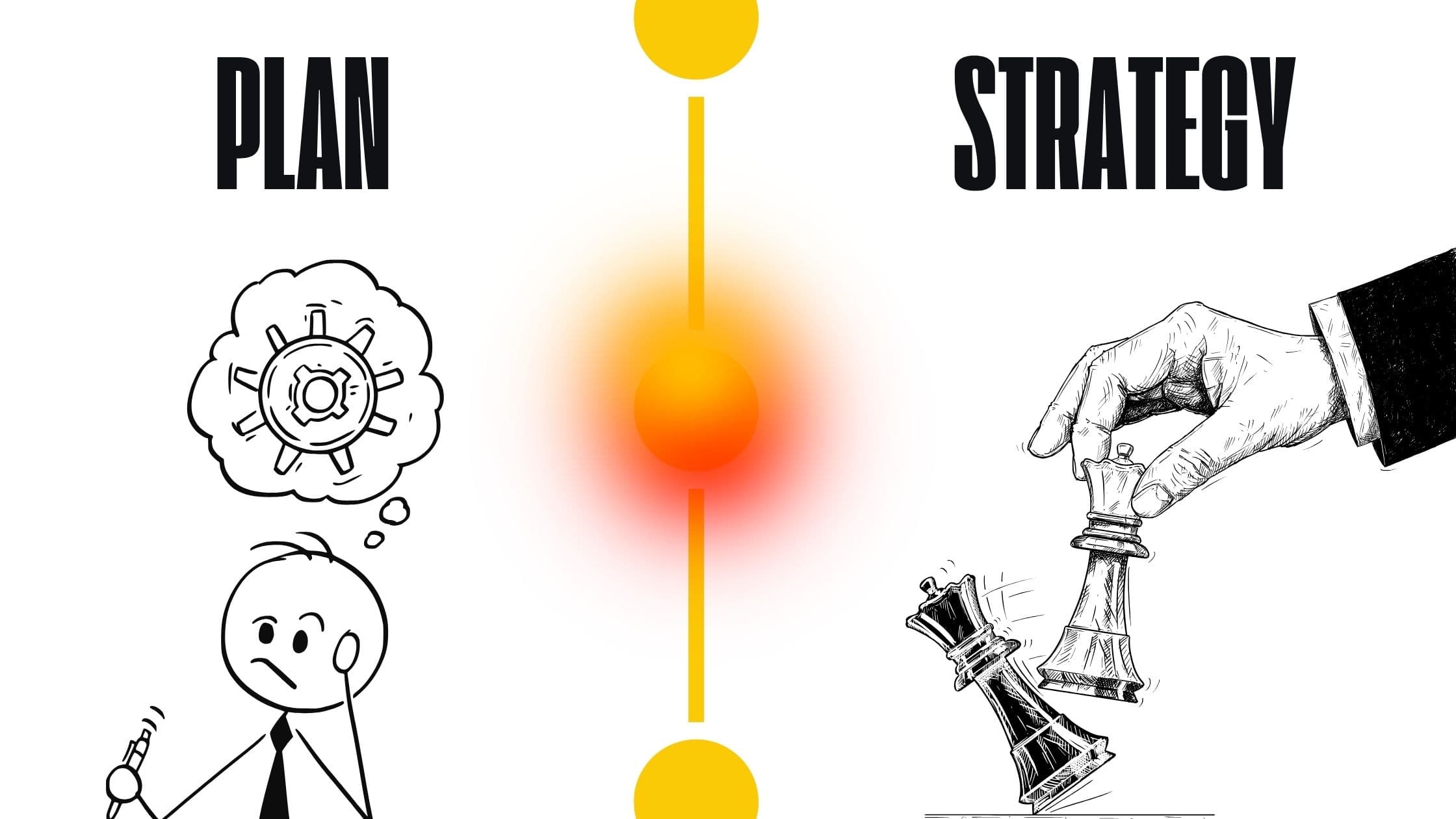
Plan vs Strategy: Why Most Teams Confuse Motion for Progress
By Asad shah
Published on October 8, 2025
Without vision, action is random. Without action, vision is just a dream.”
Let’s be honest.
Most founders and teams spend 90% of their time perfecting the plan — project boards, checklists, deadlines, tickets. Everything looks busy.
But when you ask them, “What’s the strategy?”, silence follows.
That’s the problem.
Activity without direction looks productive, but it’s motion, not progress.
In this article, I’ll break down the real difference between a plan and a strategy, why teams confuse the two, and how to fix it using a simple 3-step framework I personally apply in product and startup work.
Strategy = The Thinking
Strategy is not a list of tasks, it’s a set of choices.
It’s the logic, the theory, the mental model that defines:
- Where you’ll play and how you’ll win.
- Who you’ll serve and what you’ll not do.
- The core assumption you’re testing.
- The metric that will prove your idea works.
Think of strategy as the map. Without it, no amount of speed matters.
Quick Example
Strategy: Win SMBs who hate setup by offering zero-configuration onboarding.
It’s focused, logical, and testable.
Your plan (the doing) flows from that strategy.
Plan = The Doing
A plan is execution, the how, who, and when.
It’s a process and action steps:
- What to build.
- Who does what.
- Which tasks happen when.
Plans are necessary. But they only make sense after strategy.
Example
Plan: Build a 3-step signup flow, integrate Stripe, create onboarding templates, and send welcome emails.
That’s execution, the doing.
But if your strategy is wrong, executing perfectly still leads nowhere.
The Mistake Most Teams Make
Most teams obsess over plans: tools, tickets, sprint boards, automation, dashboards.
But none of that matters without clear direction.
A startup can build ten features flawlessly and still fail, simply because the strategy was unclear.
The fastest teams don’t just do more; they focus better.
When you’re clear on the “why” and “where,” every plan that follows becomes sharper, faster, and more impactful.
How to Know If You Actually Have a Strategy
Ask yourself — or your team — these three questions right now:
Can you explain where you’ll play and how you’ll win in one sentence?
What’s the single assumption that must be true for this to work?
What single metric will prove you’re winning?
If you can’t answer all three, you don’t have a strategy yet, just plans.
And that’s fixable.
The 3-Step Fix to Turn Plans Into Strategy
Here’s the framework I use in my own startup work, it works across products, marketing, and even personal growth.
1. Write a One-Sentence Strategy
Define who you serve, where you’ll play, and how you’ll win.
This should fit in a single line. If it doesn’t, it’s unclear.
Example: Be the easiest analytics tool for non-technical PMs.
2. List Your Top 1–2 Assumptions and Design Cheap Experiments
Every strategy depends on an assumption. Test it fast and cheap.
Example: If you believe PMs value simplicity, run usability tests or mock demos to validate.
3. Turn Experiments Into Short Plans
Once your assumption proves valid, translate it into 1–2 week plans.
Measure. Review. Adjust.
Each plan should serve a strategy, not replace it.
Every plan has a strategy behind it.
The strategy defines what matters, the plan defines what happens.
Why This Matters for Founders
In startups, execution is sexy — but clarity wins.
A founder with a strong strategy and a messy plan will outlast a founder with perfect plans and no direction.
Because a good plan can’t fix a bad strategy. But a good strategy can rescue a weak plan.
The key is to think before you build, test before you scale, and focus before you sprint.
Key Takeaway
Before you open your task board, open your notebook.
Before you plan your week, clarify your strategy.
Because when you know where you’re playing and how you’ll win — the plan writes itself.
Strategy adds focus. Plans help you execute. But without strategy, every plan is just motion without progress.
If you’re a startup founder or early-stage builder struggling to turn ideas into direction, I can help.
I specialize in transforming scattered plans into clear strategies and turning rough product concepts into working, validated web apps.
Let’s talk about your startup idea, and turn it into something real, fast.
👉 Contact me or send me your idea directly, I’ll help you map out the smartest way to build it.
